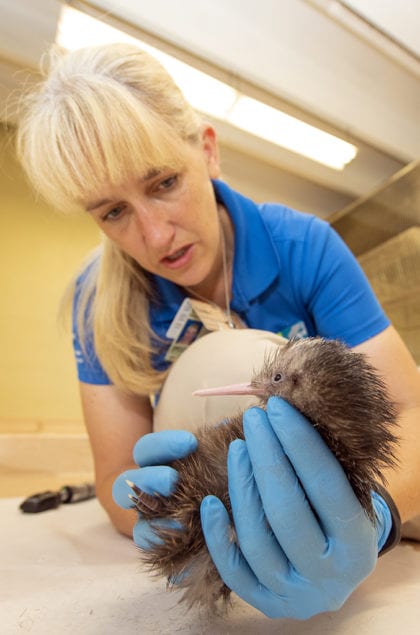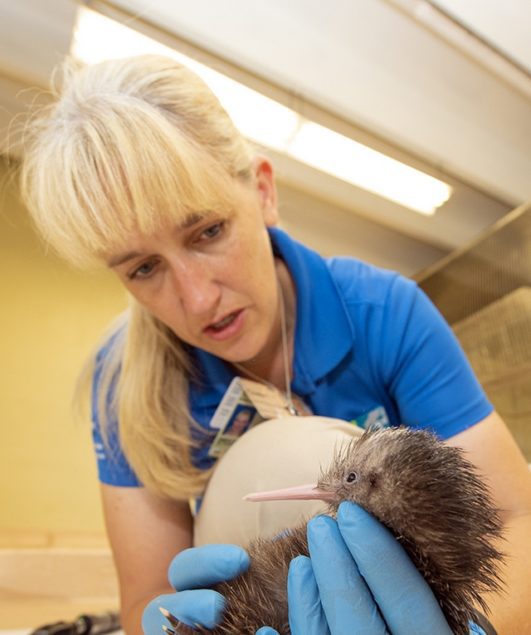
For the first time ever in the zoo’s history, a North Island kiwi hatched at Zoo Miami on Apr. 9.
This is not only a first for Zoo Miami, it is a first for the state of Florida and much of the Southeastern United States. Zoo Miami received the fertilized egg on Mar. 15 from the Smithsonian National Zoological Park where it was laid on Jan. 29. The egg was sent to Zoo Miami as part of a special loan agreement between the Smithsonian National Zoo in conjunction with the Government of New Zealand which is where kiwis are found naturally and where it is the unofficial symbol of the country and the nickname given to its citizens.
Kiwis are flightless birds with no tail and tiny wings that are hidden by feathers that look like hair. They are distantly related to ostriches and can grow from 2 to 8 pounds. Some of their very unique characteristics are that unlike other birds, their nostrils are at the end of their bill and their sense of smell plays a major role in finding their favorite foods such as worms, grubs and other invertebrates as well as some seeds and vegetation.
They only lay one egg at a time but it is very large egg relative to their size (20 percent of their body). The eggs have an incubation period of 75-85 days which is almost three times as long as most other birds. The chick hatches out looking like a mini version of the adult and is relatively well developed. They also are long lived for birds with a lifespan of 30-50 years.
Kiwis are considered a national treasure in New Zealand and every kiwi that is found outside of the country remains the property of New Zealand and the indigenous Maori peoples that live there.
Kiwis are listed as vulnerable and their greatest threats are habitat loss and predation from animals such as dogs, cats, ferrets, weasels, and cars. Because more than 90 percent of all kiwi chicks die before they are 6 months old, New Zealand began a Kiwi Recovery Program where fertile eggs are collected and the chicks are raised to an age where their probability for survival is greatly increased and then they are released to the wild.
Zoo Miami presently is incubating a second egg that was expected to hatch within about 10 days of the other chick. Both chicks will remain out of public view for at least several months until their sex can be determined and a special area is created for them to become ambassador birds.






